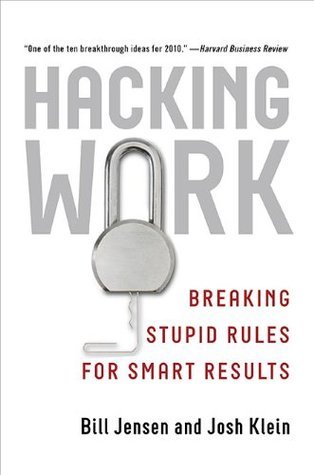What do you think?
Rate this book


224 pages, Hardcover
First published September 23, 2010
Globalisation and dozens of other forces have robbed organisations of predictability, stability, and control. So they push lots more controls and changes down through the company.
1. Constantly referring to the tipping point where Gen Y (they use 'Millenial' sparsely... which is refreshing, but also shows how dated the book is) will become the dominant generation within the workforce.
This happened several years ago, around 2013.
2. The incredibly irritating use of the word 'hacking' for anything and everything productivity related. It's as if people in 2010 didn't know what a hacker was...
3. The obvious shift from software to cloud based work tools, and the insane penetration of the saas business model.
A recent study by the IBM Institute for Business Value found that companies that practice customer co-creation experience reduced costs, increased revenues, improved customer intimacy, and enhanced product innovation and differentiation.
... business leaders could have gotten the update from Thomas Friedman's The World Is Flat: Be prepared to compete with everyone, everywhere, for everything. ... Your essential base-level needs now are food, shelter, a job, and your ability to compete for your own job every day.
No matter what you do or where you do it, a change anywhere in the world at any time can suddenly pull your job out from under you.
Your ability to please your customers or your boss or your company is no longer key. Your only hope lies in your ability to adapt and continuously do better than you did yesterday no matter what is thrown at you.
Friedman called this ability "uploading".
You have no idea how destructive and wasteful your infrastructure is because you don't need to use it the way the workforce does... Drive the forklift, use the database, fill out the form, submit it to HR, and find out how long it takes to get a response. Use your own infrastructure.